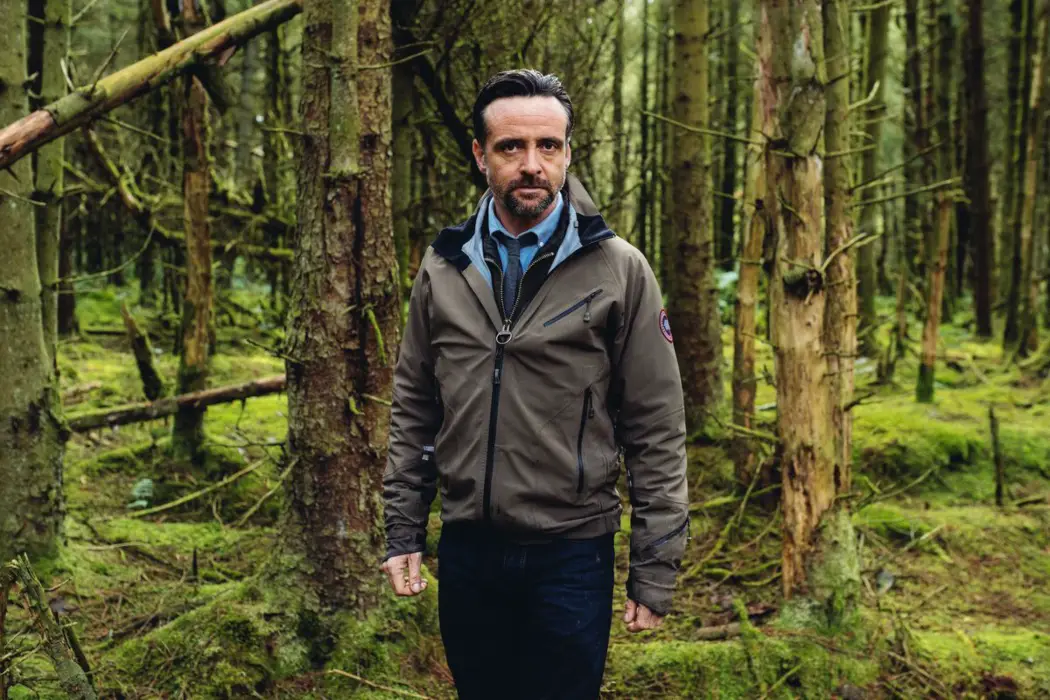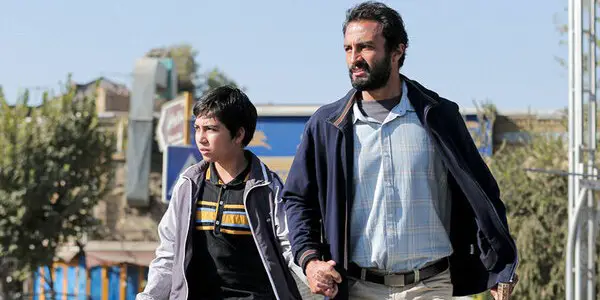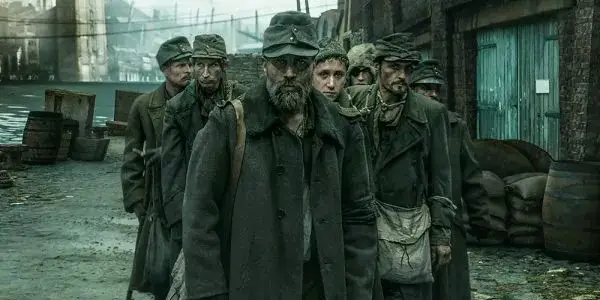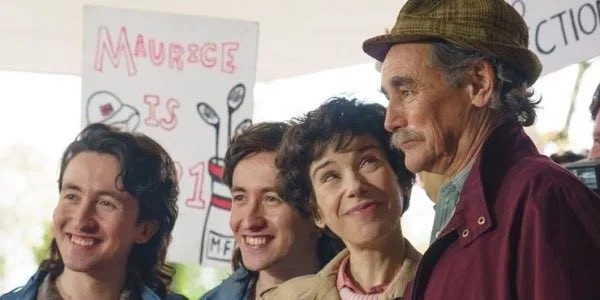London Film Festival 2021, Days 4-6: A HERO, HINTERLAND, TRUE THINGS And More

All I know is that Oscar Isaac would make a…
A Hero (Asghar Farhadi)
Paddy Wilson: “I didn’t lie,” Amir Jadidi‘s Rahim says in Asghar Farhadi‘s latest, A Hero. “But you didn’t tell the truth”, the response comes. Farhadi‘s joint-Grand Prix winner at Cannes explores the moral murkiness of this in-between no man’s land of truth.

Best known for his 2011 Best Foreign Language Film Oscar win, A Separation, Farhidi brings his signature realistic, intense style, shooting emotionally complex scenes with unfussy camera moves and natural light. Like A Separation’s straightforward title, A Hero also deals with one seemingly straightforward thing. Rahim is in prison for reneging on an outstanding debt. When Rahim’s partner finds gold coins, she and Rahim plan to use them to pay his debt to his creditor – until his conscience kicks in and he hands in the coins. Hailed as a hero, things go awry when his heroic story starts to be raise eyebrows.
Starting slow, A Hero builds not in tempo but intensity. Due to an overactive acquiesce that stems from his humility, Rahim makes small embellishments to his story to figure out a way to pay his debt. They grow into a tangle of small untruths within the larger truth of his good deed. It all builds to a nightmarishness inescapability, reminiscent of the growing dread captured in Thomas Vinterberg‘s The Hunt, where Rahim’s honour is questioned. The place is important, too: Iran, a society where people are hanged and where honor means everything. This cranks the dread up a notch.
Rahim’s sweetness is genuine, shown as much in his Good Deed as in tiny actions like turning off the stove his sister’s left on. Once some start doubting his story and character, we do too. His sweetness works against him, as evidence of his wrongdoing – who could be that sweet? Jadidi‘s excellent performance mostly keeps up with him, as he keeps Rahim on the right side of the sweet/stupid divide.
A compelling tale of a good deed turning to dread, A Hero is Farhadi‘s best since A Separation.
True Things (Harry Wootliff)
Paddy Wilson: Screenwriting books will tell you to give your protagonist a goal. They should have a want, but this should hide something else: what they need.
In Harry Wootliff‘s True Things, the follow-up to 2019’s Only You, Ruth Wilson‘s lead Kate works a boring job in the job centre. Googling holiday destinations, she wants some excitement, some intimacy. Suddenly, a charming bleach Blond stranger (Tom Burke), recently released from prison, shows up at her desk and asks her out. It seems like Kate’s want just showed up. She is taken with him, they get intimate immediately and she starts to enjoy herself.
But Blond (the only name the film gives him) soon shows himself as unreliable, emotionally erratic and cruel, only to be nice again the next time he decides to show up. It’s a film crafted around Wilson‘s performance, whose wit and vulnerability make her easy to sympathise with. She convincingly brings to life the screenplay’s well-written sense of being overwhelmed as Kate’s work, social and love life crumbles around her. This is helped further by interesting visuals which draw on the seaside location to create a sense of a storm on unsteady seas. Tom Burke, playing a very different charming love interest on the wrong side of the law from 2019’s The Souvenir, creates an intriguing character beyond the nameless Blond.
But it all adds up to something slightly underwhelming. There are moments, such as described above, where the film threatens to bare its teeth in its discussion of modern malaise or a demotic expression of depression, but it ultimately retracts. Kate’s want doesn’t give her the liberation she seeks, because it’s not her need. Her need is to gain control. And it’s something she ultimately achieves, which, while narratively fitting, comes suddenly. Much like the film as a whole, it’s too slight to feel satisfying.
Hinterland (Stefan Ruzowitzky)
Faisal Al-Jadir: Owing a good deal of its aesthetic and thematic sensibilities to 1920s German Expressionist Cinema, Stefan Ruzowitzky’s Hinterland presents a bleak, nightmarish landscape of Austrian society in the aftermath of the First World War. It is primarily seen through the eyes of Peter Perg (Murathan Muslu), a criminologist who fought for his emperor in the Great War, only to endure years of hunger and sickness in captivity.

The Vienna he returns to is more alien to him than the hellish battlefields that haunt him, finding that his wife has moved on from his memory, and he is treated like a plague rat by the twisted hierarchy of the new Austrian republic. When his fellow comrades are suddenly targeted in a series of calculated murders, Perg seeks to find the killer, while battling the demons of his past and the mistrust of the authorities.
The film is an electrifying ode to German Expressionism. Darkly-lit corridors and tunnels. Clusters of distorted and slanted buildings invoke the oppressive and fascistic architecture from The Cabinet of Dr. Caligari (1920) and Metropolis (1927). The dirty, lived-in city is born from the carnivalesque, with the citizens rising from the seedy underbelly and engage in a hostile and paranoid atmosphere (which references Fritz Lang’s Mabuse films).
There is a heavy reliance on visual effects to create the stunning backdrops and exterior architecture, which, at times, may enable the film to indulge in style that detracts from some much-needed intimacy in certain scenes.
Yet the film is well-acted and boasts an ambitious narrative, that weaves the political with the pulp. It raises some ethical and moral questions about ideology, politics, society, and war, deconstructing the black and white nature of anarchy and terrorism.
A remarkable achievement that understands the cinema that inspired it.
Two Friends (Prasun Chaterjee)
Paddy Wilson: Written and directed by Prasun Chaterjee, Two Friends, or in its original Bengali title ‘Dostojee’, follows two 8-year old best friends in India amidst religious tension after the destruction of the Barbri Mosque. Safikul, from a Muslim family, and Palash, from a Hindu family, are neighbours separated only by a rickety fence. Though chalk and cheese, they are inseparable.
The first hour or so of the film, when closely studied moments of friendship are the focus, is good. One such moment is, to honour their friendship, they engrave their initials with a love heart on a tree. It’s a nice moment, demonstrating the emotional openness of children, and a reminder that we fall in love with our friends too – a phrase usually reserved for romantic relationships. Fittingly, Two Friends is being shown as part of the festival’s ‘Love’ strand. The boys’ performances are natural and endearing. It’s at its best here, in the smaller stuff: a falling out over a kite and the desire to make up, running around the narrow roads and posing like their favourite actor.
But when it veers away from this, there’s trouble. The religious conflict is introduced and then underused. Not peripheral as though from Safikul and Palash’s point of view, but underexplored. The subtitles need a new translation, sometimes resulting in garbled English. But the structure might be the biggest problem. The big event of film happens in a strange place: too late for it to be a midpoint change, catapulting the story into a new second half, and too early for the rest of the sustain any sense of crescendo or conclusion. It feels like Chaterjee wrote four endings and, liking them all, decided to keep them all. The screen fades out three or four times, only for another emotional denouement scene to insist itself upon us. The result is repetition, protaction and melodrama.
A strange structure and overlong running time spoils an otherwise sweetly performed film with a strong sense of place. Two Friends feels like a missed opportunity.
The Phantom of the Open (Craig Roberts)
Paddy Wilson: Craig Roberts‘ third effort behind the camera, The Phantom of the Open tells the true story of Maurice Flitcroft, a soon-to-be-redundant crane driver from the north west of England, who enters the British Open having never played a round of golf in his life.

Roberts has assembled two great leads: his Eternal Beauty star, Sally Hawkins, and Oscar winner Mark Rylance. It’s their performances and their relationships that are the heart of this cheerful film (generic northern accents aside). Rylance inflects Maurice with overflowing amounts of sweetness. Curious, naive and positive to a fault, we remain firmly on his side all the way through. Much like Hawkins‘ Gene, Maurice’s wife, a warm, inviting mother and wife. Never straying far from the biopic story template, Rylance‘s easy naive charm gives expected plot developments an unexpected emotion.
Roberts dials back the Paul Thomas Anderson style dollies and attention-drawing push-ins that were liberally scattered throughout his previous film, Eternal Beauty, though many remain. A touch overused for a film whose tone is an excellent Sunday afternoon underdog story, these touches of showy camera work for the most part add a pizzaz rather than clash.
Think Eddie the Eagle with better performances and more of a directorial flourish, The Phantom of the Open is a warm hug of an underdog movie.
Does content like this matter to you?
Become a Member and support film journalism. Unlock access to all of Film Inquiry`s great articles. Join a community of like-minded readers who are passionate about cinema - get access to our private members Network, give back to independent filmmakers, and more.













